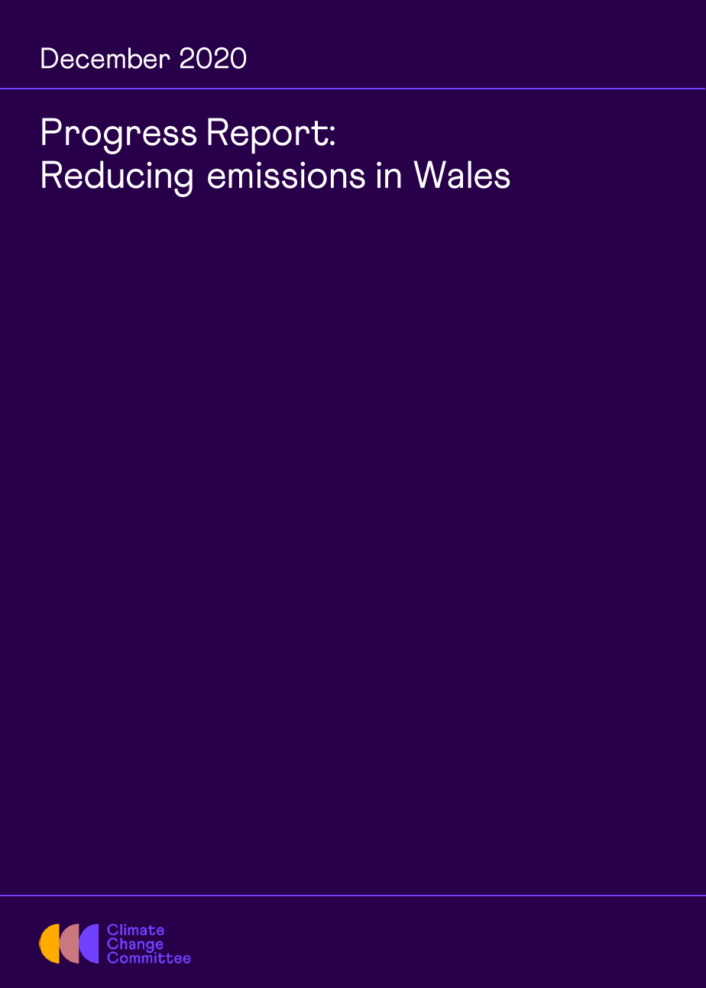1. Outline
These two joint reports, required under the Environment (Wales) Act 2016, provide ministers with advice on Wales’ climate targets between now and 2050, and assess progress on reducing emissions to date. Our advice to the Welsh Government is set out in two parts:
- Advice Report: The path to a Net Zero Wales provides recommendations on the actions that are needed in Wales, including the legislation of a Net Zero target and package of policies to deliver it.
- Progress Report: Reducing emissions in Wales looks back at the progress made in Wales since the 2016 Environment (Wales) Act was passed, and assesses whether Wales is on track to meet its currently legislated emissions reductions targets.
This work is based on an extensive programme of analysis, consultation and consideration by the Committee and its staff, building on the evidence published last year for our Net Zero report. It is compatible with our advice on the UK’s Sixth Carbon Budget. In support of the advice in this report, we have also published:
- All the charts and data behind the report, as well as a separate dataset for the scenarios, which sets out more details and data on the pathways than can be included in this report.
- A public Call for Evidence, several new research projects, three expert advisory groups and deep dives into the roles of local authorities and businesses.
2. Download the reports
3. Key messages
Wales should set and pursue an ambitious Net Zero target in 2050. We have also recommended a challenging set of interim emissions targets on the pathway to a Net Zero Wales. This will require action in four key areas:
- Taking up low-carbon solutions. People and businesses can adopt low-carbon solutions as high-carbon options are phased out. By the early 2030s all new cars and vans and all boiler replacements in homes and other buildings will be low-carbon – largely electric. By 2040, all new heavy goods vehicles should be low-carbon. Wales’ industry shifts to using renewable electricity or hydrogen instead of fossil fuels, or captures its carbon emissions, storing them safely under the sea.
- Expanding low-carbon energy supplies. Electricity supply is zero carbon by 2035. New demands for clean electricity from transport, buildings and industry mean electricity supply in Wales must double by 2050. In Wales, low-carbon electricity generation will shift from 27% now to 100% by 2035, cutting Welsh power sector emissions by more than 95%. Low-carbon hydrogen, produced using electricity or from fossil gas with carbon capture and storage, is needed in shipping and parts of industry less suited to electricity use, as well as potentially in trucks.
- Reducing demand for high-carbon activities. Wales wastes fewer resources and reduces its reliance on high-carbon goods. Buildings lose less energy through a national programme to improve insulation across Wales. Diets change, reducing our consumption of high-carbon meat and dairy products by 20% by 2030, with further reductions in later years. There are fewer car miles travelled and demand for flights grows more slowly. These changes bring striking positive benefits for health and well-being.
- Transforming land. There is a transformation in agriculture and the use of farmland while maintaining the same levels of food per head produced today. By 2030, 43,000 hectares of new mixed woodland are planted to remove CO2 and deliver wider environmental benefits, rising to 180,000 hectares by 2050. 260,000 hectares of farmland shifts to producing energy crops.
Emissions fell by 20% in just two years from 2016 to 2018, with the closure of Wales’ last coal-fired power station. Despite good progress, Wales is not yet on track to meet its existing, less stringent, 80% emissions target. A cohesive, economy-wide strategy for 2050, that ties in with UK-wide plans, is urgently needed if Wales is to reach Net Zero by that date.
4. Supporting information, charts and data
5. Supporting research
The supporting research for the Sixth Carbon Budget is also relevant to this analysis and can be found at this link.
Topics







